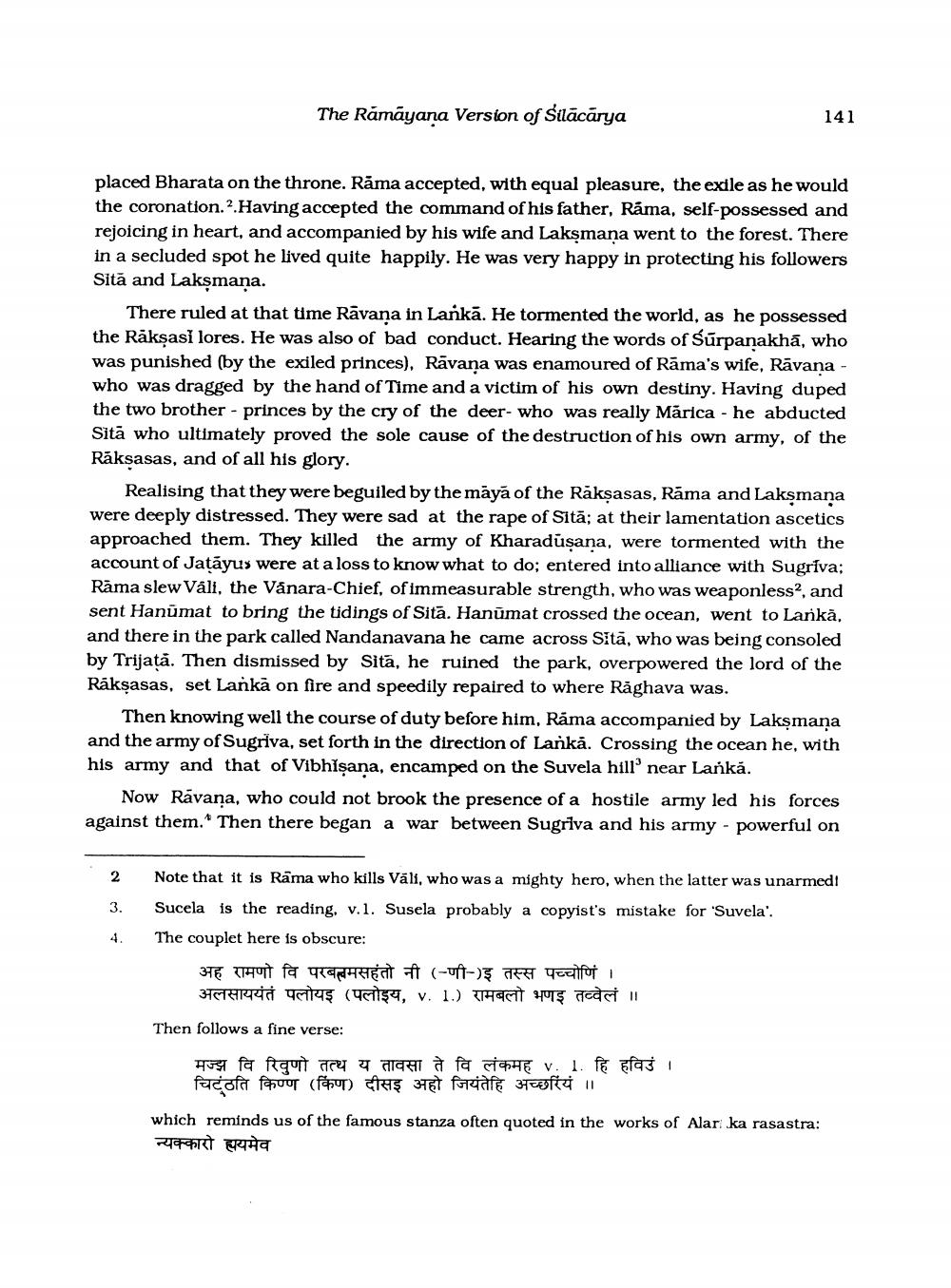________________
The Rámāyana Version of Silācārya
141
placed Bharata on the throne. Rāma accepted, with equal pleasure, the exile as he would the coronation. Having accepted the command of his father, Ráma, self-possessed and rejoicing in heart, and accompanied by his wife and Laksmana went to the forest. There in a secluded spot he lived quite happily. He was very happy in protecting his followers Sită and Lakşmana.
There ruled at that time Rāvana in Lankā. He tormented the world, as he possessed the Räkşasi lores. He was also of bad conduct. Hearing the words of Śūrpanakhā, who was punished (by the exiled princes) Rāvana was enamoured of Rāma's wife, Rāvana - who was dragged by the hand of Time and a victim of his own destiny. Having duped the two brother - princes by the cry of the deer- who was really Marica - he abducted Sita who ultimately proved the sole cause of the destruction of his own army, of the Raksasas, and of all his glory.
Realising that they were beguiled by the māyā of the Rakşasas, Rāma and Laksmana were deeply distressed. They were sad at the rape of Sitā; at their lamentation ascetics approached them. They killed the army of Kharadusana, were tormented with the account of Jatayus were at a loss to know what to do; entered into alliance with Sugriva; Rama slew Vali, the Vánara-Chief, of immeasurable strength, who was weaponless, and sent Hanūmat to bring the tidings of Sita. Hanūmat crossed the ocean, went to Lanka, and there in the park called Nandanavana he came across Sitā, who was being consoled by Trijată. Then dismissed by Sitā, he ruined the park, overpowered the lord of the Raksasas, set Lankā on fire and speedily repaired to where Raghava was.
Then knowing well the course of duty before him, Ráma accompanied by Laksmana and the army of Sugriva, set forth in the direction of Lanka. Crossing the ocean he, with his army and that of Vibhîşana, encamped on the Suvela hill' near Lańká.
Now Rāvana, who could not brook the presence of a hostile army led his forces against them. Then there began a war between Sugriva and his army - powerful on
2 3.
4.
Note that it is Rāma who kills Vāli, who was a mighty hero, when the latter was unarmed! Sucela is the reading, v.1. Susela probably a copyist's mistake for 'Suvela'. The couplet here is obscure:
अह रामणो वि परबलमसहंतो नी (-णी-)इ तस्स पच्चोणिं ।
3totarrid T14 (401154, v. 1.) THAT 4075 dci II Then follows a fine verse:
Host fa fou au y a fa che v. 1. fe faz चिट्ठति किण्ण (किंण) दीसइ अहो जियंतेहि अच्छरियं ।।
which reminds us of the famous stanza often quoted in the works of Alar: ka rasastra: न्यक्कारो ह्ययमेव




